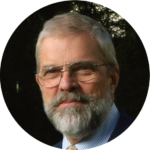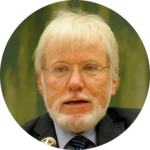OF Discussion Board n°1 – 22 April 2020
Question asked : “How has the virus crisis affected your basic convictions about economy and society?”
Thanks for those of our contributors who ventured to react to the first question posed in this Discussion Board
Editorial – Convictions rarely change… but they get refined
by Virgile Perret & Paul H. Dembinski
| The general answer, often implicit, of contributions to the inaugural question of DISCUSSION BOARD – is “convictions rarely change, but they get refined”. The coronavirus pandemic raises fundamental questions about the respective roles of market, State and civil society in addressing the most pressing socioeconomic challenges. Speaking from different perspectives and geographical locations, most our contributors feel comforted in their conviction that the pandemic is another reminder of the necessity to rethink some basic interactions between economy and society. The contributors also point out some important directions. Mainstream economics tends to look at economic matters independently from the wider social and political context. The pandemic shows how inadequate this approach is. Instead, the lesson many of our contributors draw from the crisis is that the discipline of economics should open itself to other insights and that we need to find another, more integrative model to for economy and society, in which the search of the common good will prevail. The global health crisis also reveals how deep and complex is the network of economic interdependences, with global value chains running across many sectors. Thus, some predict that the reduction of dependence on foreign sources & markets will be the strategic priority in the post-pandemic world, both for public and private actors. This might be a first step towards « deep deglobalisation » and a more active role for the state. Other contributors stress that the logistic difficulties and spontaneous solidarity movements open « a world of new opportunities for public-private collaboration ». But we are also being recalled the major impact of the crisis on employment, with 3 billions people workers experiencing a major shift in their work experience. Eventually, a large number of contributors tend to recognize the link between the virus crisis and the environmental challenge we are facing, sometimes arguing that it could be « an opportunity to generate a systemic change in how we manage our countries and the planet ». In contrast, however, some consider that “the crisis is not enough to push us in the right direction”, since we are still deeply influenced by the values and visions we internalized before the crisis. Who’s right? The future will tell. |
  |
| “… society at large, to which economy is a fiduciary, has been underserved …”
The virus crisis shows that society at large, to which the economy is a fiduciary, has been underserved. Developing vitamins means that we radically need to develop and apply a wider spectrum of cross-domain tools from moral philosophy, positive psychology and applied sociology to implement economic concepts holistically to the ultimate benefit of society. This calls for inclusive, innovative and compassionate leadership, for a reflection on the political, business and education systems and for a continuous debate on solving ever changing wicked problems. Especially for profit-focused organisations, we need to consider how they are measured, what that means for their focus on profit maximisation towards optimisation and what supporting changes need to come from enabling technology and the legal system. Eelco Fiole |
|
| “… economies don’t integrate health issues in their business model …”
The COVID-19 crisis highlights the current societal issues we face in our modern world. Since now the 80s, finance and shareholder maximization are the alpha and the omega of our society, with economy and society as the adjustment variables to answer this objective. The biodiversity destruction generates pandemics, and finally social consequences, observing that economies don’t integrate health issues and public considerations in their business model… The vision is systemic, and we have to understand that Finance is a just tool serving our economy, and finally the goal of social welfare and biosphere protection, in the sense of Karl Polanyi theory of embeddedness. Christophe Revelli
|
|
| “… the system urgently need to be re-thought …”
The virus has not affected my basic convictions about the economy but rather enhanced my belief that the system urgently needs to be re-thought. By which I mean not only a break with some of the core tenets of liberalism, but also and most importantly the development of a new macroeconomic model. We need to think about the market’s equilibrium as a specific common good inserted and dependent on other common goods. This task is urgent. A theoretical framework for such macroeconomic model could be based on thinkers of the so-called “economia civile”. A huge challenge however is to bring these ideas to the level of a descriptive/prescriptive models of the market. This, I would suggest, needs us to understand in more details how commons work and sustain themselves as human commons. Mathias Nebel
|
|
| “… we have to find another model for economy and society …”
In fact, the Coronavirus has visualized that there is a possibility to break the paths which we follow and start again. Alternative approaches to economics taught me that the economy not embedded in society stays on very shaky foundations (big inequalities, over-consumption on the cost of the nature and famine of other, growth of the financial sector). The conviction of many, that there is no other way but to continue this path, is now, due to Coronavirus, shaken. It teaches that we have to find another model for economy and society, in which collective needs will be better satisfied (health system, education, public space). Anna Horodecka
|
|
| “… truth in prices is essential to fairness…”
It has strengthened my convictions.
Edouard Dommen
|
|
| “… this is also a complexity crisis…”
This global pandemic lifted the curtain on the best and worst instinct of human nature. People have been clapping on balconies every evening for a month. Others have quickly seized the opportunity to denounce their neighbours. I wrote “other”…. but they can be the same people. Have those who rushed to the store to pile up toilet paper also started support groups to deliver groceries to the elderly ? People are complex. And so is the global economy made of a myriad of different intermediaries located around the globe all dependent upon one another, producing and delivering at a pace that doesn’t allow the smallest misstep. As in 2008, but now on a much larger scale, this is also a complexity crisis. Philippe Rudaz
|
|
| “… human actions are interdependent both at local and global level …”
Currently, individuals and socio-economic organizations suffer an existential jet lag. They have to find their role as the metamorphosis of the world (Ul. Beck) to a liquid interrelations nexus is taking place. It is now well understood that the human actions are interdependent both at local and global level. The Coronavirus crosses the roads -highways and small alleys- we ‘ve made in order to produce, to exchange, to make profit, to relax. Another thing we ‘ve learned is that fragility, vulnerability, and liquidity became constituting elements in contemporary societies and therefore we have to naturalize them in our economic and political strategies. A new perception on the acceptable balance between economic and social risks is necessary. Christos Tsironis
|
|
| “… the importance of global value chains has been cleared … “
It has reaffirmed my conviction that society is not the sum of individuals but a community with common sense. We are watching society as a community at work. Oscar Ugarteche
|
|
| “… a serious reduction of major countries’ dependence on foreign sources…”
As a former UN staff member I shall concentrate on what is likely to be a serious eventual reduction of at least major countries’ dependence on foreign sources (and thus elaborate supply chains) for goods and services regarded as of high priority. This will probably be reflected in changes in multilateral rules and guidelines for international commerce in the direction greater national policy autonomy, particularly regarding not only medical items but also agriculture, public procurement, and eventually goods and services associated with the information economy (for the last of which such rules and guidelines are anyway still at an early stage of development). Andrew Cornford
|
|
| “… the State is going to have a more active role…”
In my view, the outbreak of the virus strengthened some trends, both at institutional and individual level. Andrea Roncella
|
|
| “… a world of new opportunities for public-private collaboration…”
No basic change in convictions! Just a few short thoughts:
Domingo Sugranyes
|
|
| “… work is central to our lives … “
Strange you are asking about a change in conviction, in the middle of a deep and profound crisis. Ignatius, our Jesuit founder, reminds us of how important it is to continue our way in times of desolation. If this desolation brings me back to one conviction, it is that work is central to our lives. Maybe too central, yes, but this is a fact of our society. Everywhere, we hear about losses, fear of bankruptcy, economic crisis, companies on the verge of collapses, financial market speculation and solvency issues. But first, we should remind ourselves that this is the first crisis which starts with a massive and unprecedented disruption in the labour market. More than 3 billions people workers are experiencing a major shift in their work experience. For us and our societies, this is an important existential experience. The response we shall engage to this crisis will need also to be existential. Pierre Martinot-Lagarde
|
|
| “… cette crise est un signal que la nature émet…” La crise du coronavirus confirme ma conviction selon laquelle la globalisation de l’économie doit être analysée de manière critique. La mondialisation de l’économie est le vecteur de la diffusion accélérée des pandémies. Par ailleurs, cette crise est un signal que la nature émet. La chute de la biodiversité et la déforestation accélère l’apparition des épidémies. Marc Chesney
|
|
“… an opportunity to generate a systemic change …”The virus crisis has confirmed my views. My convictions are based on research concerning the convergence of three systemic challenges: the environmental catastrophe, the deepening inequality, the financial chaos. The world was already going in the wrong direction. Financial resources must serve our needs, namely sustainable development and economic inclusion. The present virus crisis interrupted the business as usual approach to the slow-motion catastrophe we are building. It not only confirmed my views, but in my opinion can be an opportunity to generate a systemic change in how we manage our countries and the planet. Ladislau Dowbor
|
|
“… the crisis itself is not enough to push us in the right direction …”
Christoph Stückelberger
|
|
| “… l’absurdité aide les humains à penser le bon moyen de penser …”
Mes absurdes pensés de la nuit. Pourquoi absurdes, diriez vous ? Parce qu’il arrive que dans certains moments de l’Histoire, l’absurdité aide les humains à penser le bon moyen de penser. Et non seulement. Aussi, parce que tout les malheurs que l’ange exterminateur est en train de causer dans le monde entier apparait comme s’il s’agissait d’une calamité absurde. C’est faux ! Il ne s’agit, en effet, comme l’Histoire nous l’apprends, que d’une périodique punition régénératrice tout à fait normale. Fabrizio Sabelli
|
|














